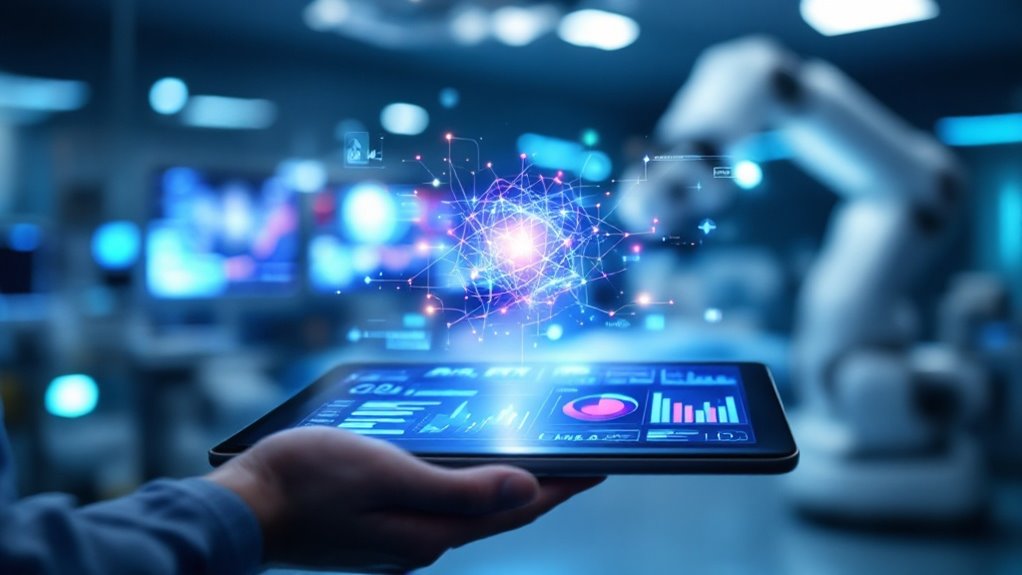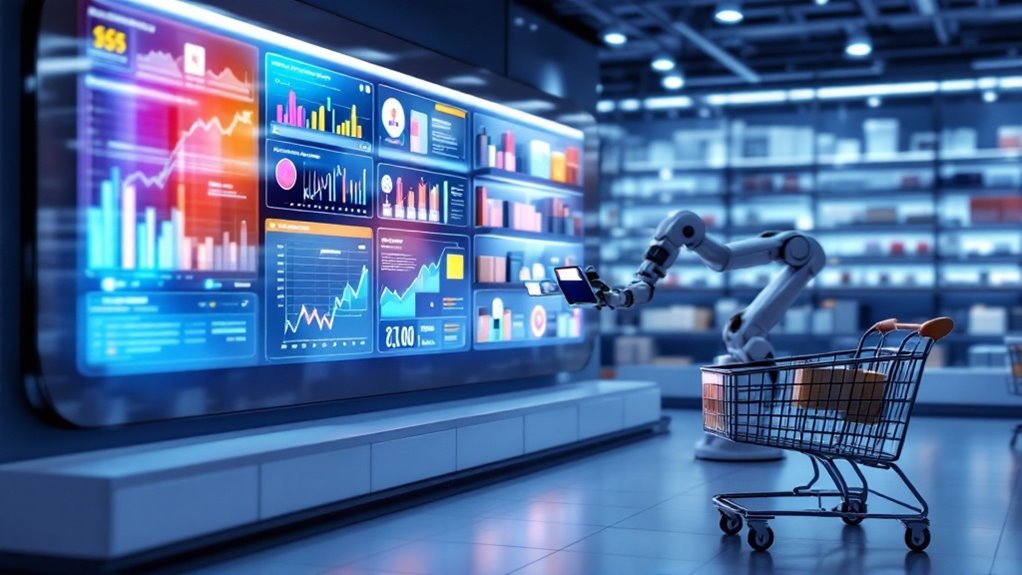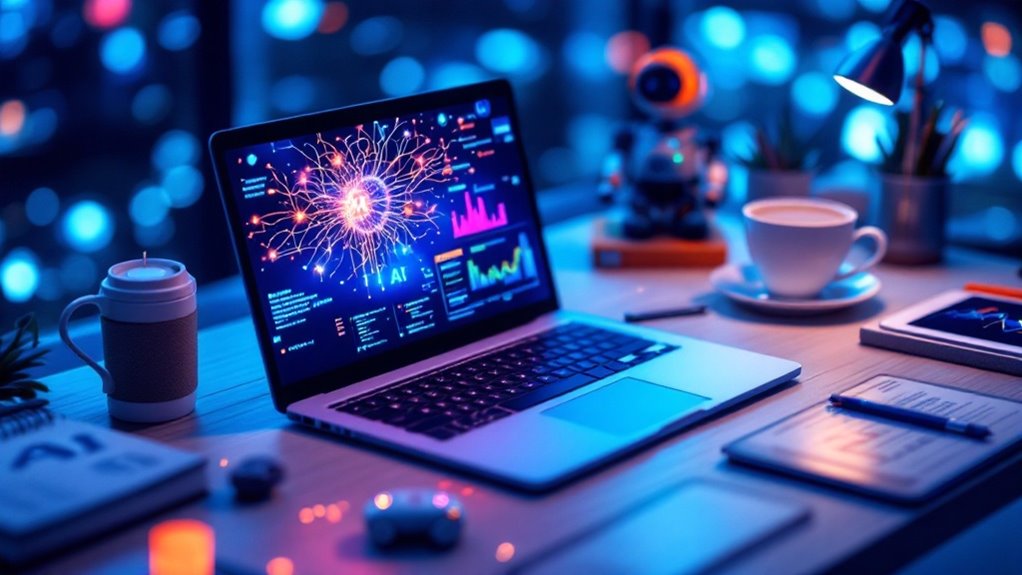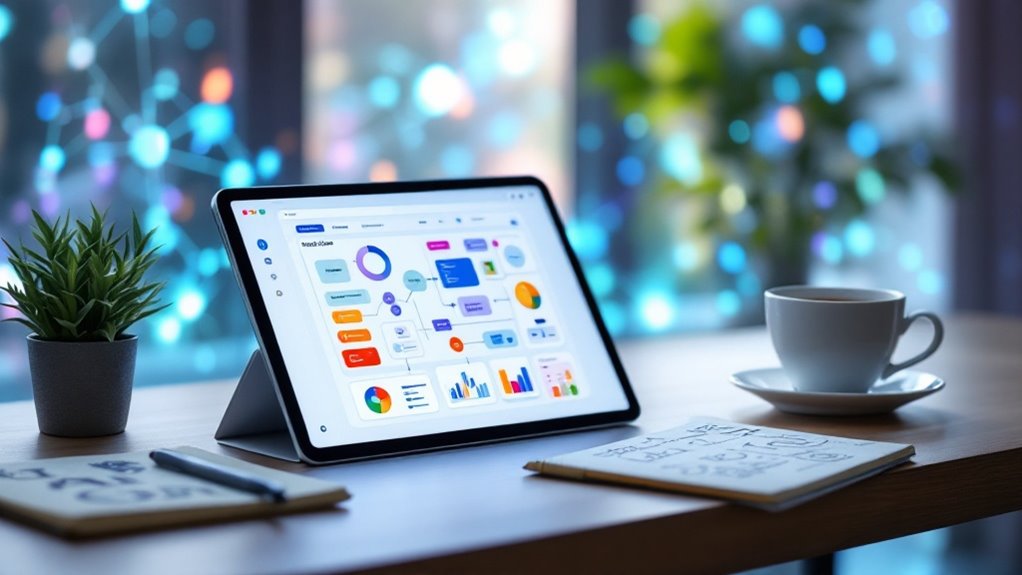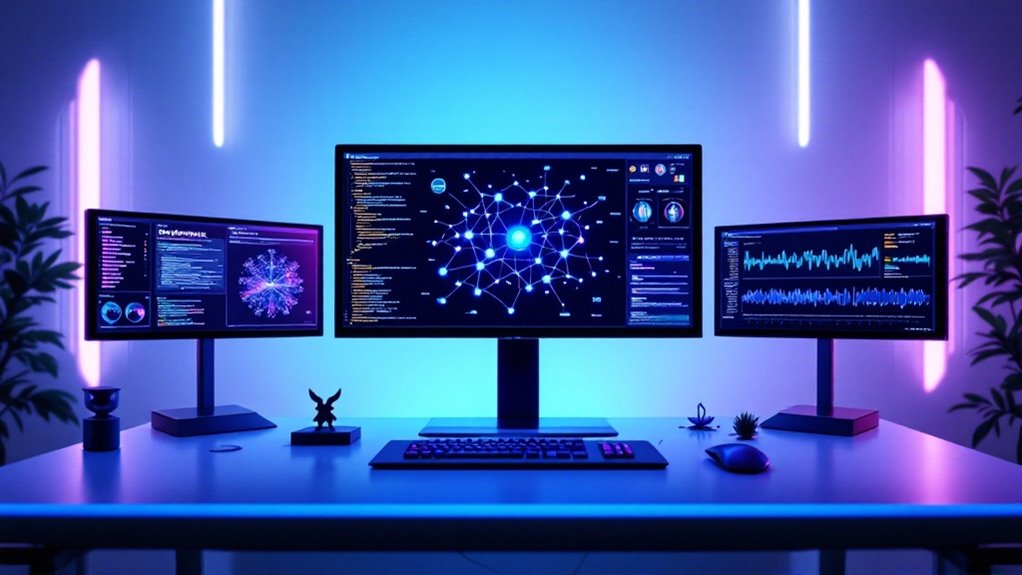AI in healthcare isn’t just checking your symptoms online anymore—it’s diagnosing conditions with machine learning, robotically assisting in surgeries (move over, McDreamy), and even herding endless paperwork so doctors can, you know, be doctors. From AI-powered microscopes nailing bloodborne pathogen detection to wearables tattling on your heart to your doctor, it’s everywhere. Tomorrow looks even busier, with smarter algorithms predicting drug interactions and handling your appointments. Curious what else AI is plotting for your next checkup? Keep going—there’s plenty more.
Even if your last brush with artificial intelligence was binge-watching sci-fi movies—where AI either saves humanity or, you know, destroys it—rest assured: in healthcare, it’s (mostly) here to help. Imagine this—no cyborg nurses or robot overlords, just algorithms quietly crunching your medical records behind the scenes.
Forget robot overlords—AI in healthcare works behind the scenes, quietly analyzing your data to help doctors, not take over the world.
Diagnosis? There’s an AI for that. Algorithms now sift through mountains of electronic medical records to spot patterns and nudge clinicians toward better diagnoses. Tools like Regard’s clinical co-pilot are basically the Dr. House of the digital age—minus the sarcasm. In addition to this, AI improves medical diagnosis accuracy and speed by using machine learning and deep learning to rapidly analyze patient data.
Chatbots such as Buoy Health talk patients through symptoms, using natural language processing that almost (almost!) passes the Turing Test. Meanwhile, AI-powered microscopes at Beth Israel Deaconess spot dangerous bloodborne pathogens with 95% accuracy. Not to be outdone, DeepMind’s predictive analytics sniff out early signs of diabetic retinopathy, and SKOUT flags precancerous polyps before they become a problem.
—
In the OR, robots aren’t just science fiction props. Robot-assisted surgeries are raising the bar for precision—think of it as Iron Man’s HUD for surgeons. Real-time imaging analytics guide decisions mid-surgery, and automated polyp detection tools help gastroenterologists catch cancer early. The AI-powered robotic surgery devices now in use are specifically designed to enhance surgical precision and minimize the risk of human error during procedures.
Even anesthesia gets a tech upgrade, with AI adjusting dosages on the fly based on patient health metrics. These advances represent part of the economic growth projected to reach $15.7 trillion by 2030 through AI applications across industries.
—
Let’s not forget the paperwork apocalypse. AI has its digital hands in EMR documentation, clinical trial recruitment, billing, coding, and even appointment scheduling. It’s like having a virtual assistant who doesn’t ask for coffee breaks.
Prior authorization—once the bane of every clinician’s existence—gets fast-tracked with automation.
—
Remote monitoring? It’s real, and it’s personal. Wearable AI devices ping providers about cardiac hiccups, fall detectors keep tabs on elderly patients, and telehealth platforms use AI triage to sort urgent cases from “WebMD says I’m dying.”
—
From radiology to drug discovery, AI is everywhere. X-ray analysis tools flag urgent cases, brain scan algorithms expedite stroke care, and AI models predict drug interactions.
The future? Smarter, faster, and—hopefully—less paperwork for everyone.
